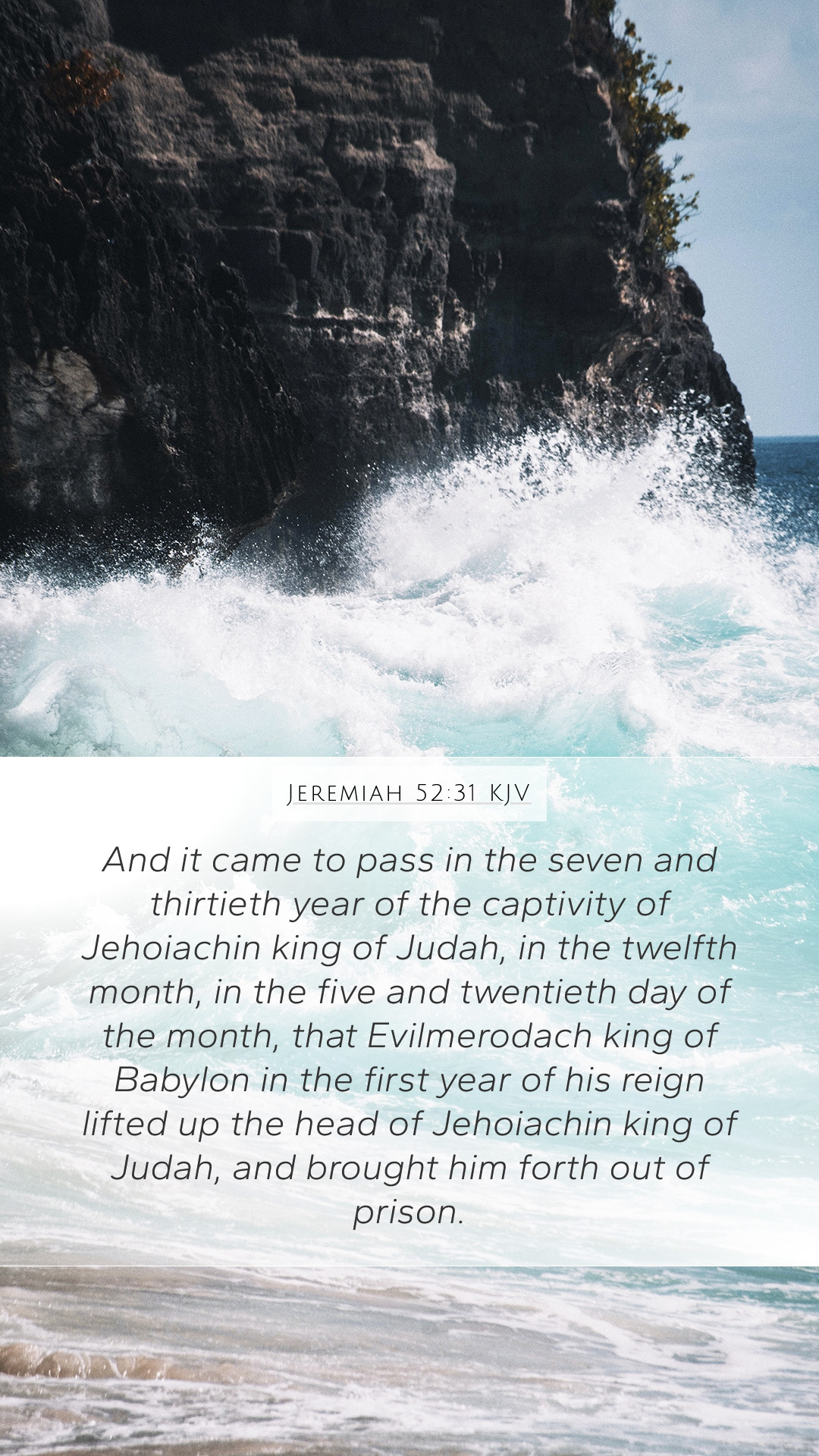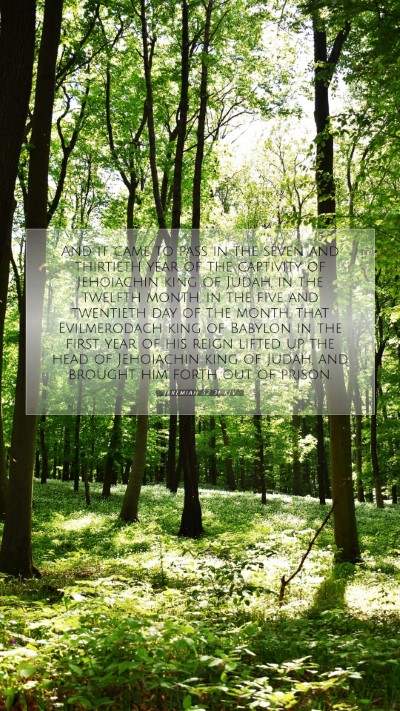Understanding Jeremiah 52:31
Jeremiah 52:31 states, "And it came to pass in the thirty-seventh year of the captivity of Jehoiachin king of Judah, in the twelfth month, in the five and twentieth day of the month, that Evil-merodach king of Babylon in the first year of his reign lifted up the head of Jehoiachin king of Judah, and brought him forth out of prison." This verse marks a significant moment in the Biblical narrative, emphasizing themes of restoration and hope amid captivity.
Bible Verse Meanings
The story behind Jeremiah 52:31 is crucial for understanding the broader themes of the Bible. Matthew Henry highlights the importance of God’s providence and faithfulness. The release of Jehoiachin illustrates God's promises to His people, demonstrating that even in their darkest moments, hope remains.
Bible Verse Interpretations
Albert Barnes interprets this verse as a pivotal turning point for the Israelites. Jehoiachin's release signifies that God can elevate His people from despair and darkness. The action of Evil-merodach serves as a reminder that God can use even foreign kings to fulfill His plans for Israel.
Bible Verse Understanding
Adam Clarke provides additional insights by explaining the socio-political context of Jehoiachin's captivity. His release after such a long time signifies the end of a cycle of judgment, and a move towards the restoration of Israel. Clarke emphasizes that this event is a key moment, transitioning from judgment to mercy.
Bible Study Insights
This verse fits within a broader narrative of redemption in the scriptures. Understanding Jeremiah 52:31 can serve as valuable Bible study material, delving into the themes of captivity, restoration, and God's unyielding love. It encourages reflection on how God intervenes in the lives of individuals and nations alike.
Explanation of the Context
- Historical Context: Jehoiachin was king of Judah during a tumultuous period marked by Babylonian conquest.
- Spiritual Context: The verse underlines the eventual restoration of God's people despite their past disobedience and exile.
- Personal Application: It serves as a reminder of hope, showcasing God's ability to transform lives no matter the circumstances.
Significance of Jeremiah 52:31
This passage holds significance not just as a historical record but as a profound illustration of God's mercy. It serves as a source of encouragement for those looking for Biblical exegesis on themes of redemption and restoration. The verse illustrates that even in the deepest despair, there lies a promise of deliverance through God’s grace.
Cross References
- 2 Kings 25:27-30 - The account of Jehoiachin's release from captivity.
- Isaiah 40:1-2 - A message of comfort and hope for Jerusalem.
- Lamentations 3:22-23 - God's steadfast love and mercy, renewing each day.
Application in Daily Life
For contemporary readers, Jeremiah 52:31 is a call to trust in God's plans during times of hardship. Individuals facing difficulties can take solace in the fact that captivity—be it spiritual, emotional, or physical—is not the end of God's narrative for their lives. This reflection serves as a meaningful truth to carry into daily life.
Further Bible Study Recommendations
Those interested in exploring the implications of Jeremiah 52:31 can benefit from:
- Engaging in Bible study groups focused on themes of hope and restoration.
- Utilizing online Bible study resources to delve deeper into the historical context of the Israelites.
- Exploring Bible study guides that convey the significance of Old Testament prophecies and their applicability today.


